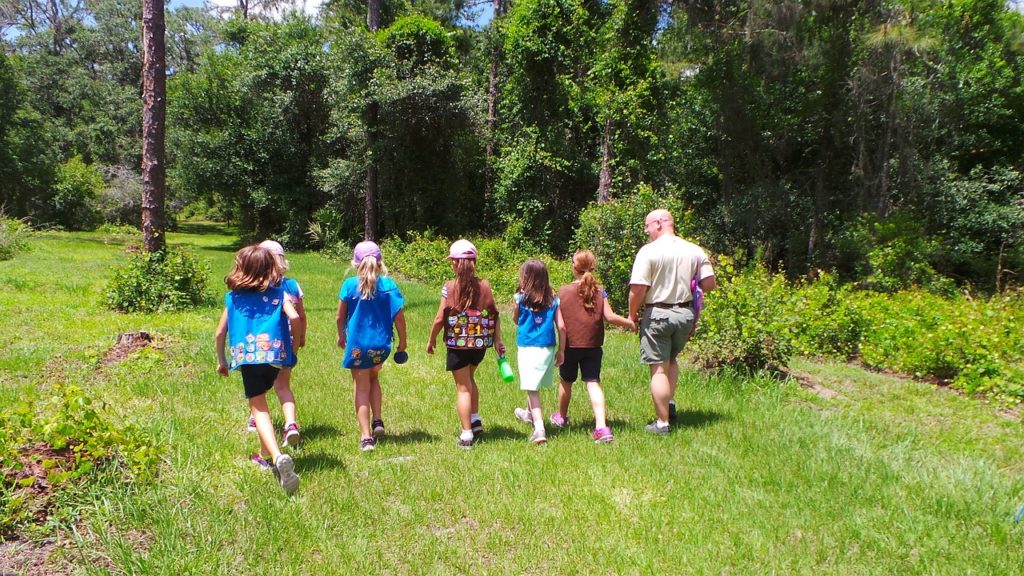How to find homeschool groups in your area
Seeking homeschool groups to supplement your children’s learning at home? Here’s where to look and what to consider to find ones in your area.

Homeschooling may seem like it could be lonely or isolating, but many homeschooling families belong to communities and groups that offer plenty of opportunities for students and parents to socialize, learn in a group setting and be active outside their homes.
“I think homeschoolers are independent, certainly,” said Kathy Green, co-founder of Homeschoolers of Maine, a nonprofit organization that has supported and united homeschooling families throughout the state of Maine since 1990. “They decided to make a choice that’s contrary to most of their peers, so they’re independent in that way. But I haven’t found it to be an independence that isolates them.”
The trick is in finding that community. Local homeschooling groups and events can be difficult to track down.
“People want community,” Green said. “They want to know what resources are out there. They want answers to their questions. They want to feel a part of something and know that there are others like them facing the same challenges and struggles. That sense of community is important.”
Here are a few tips for finding homeschooling communities.
Visit your local library
Nationwide, about 70 percent of homeschoolers find materials for their curriculum at a library, according to a 2012 survey by the U.S. Department of Education. In addition, libraries are great places for homeschoolers to connect with other homeschooling families and groups.
“I think when people first start homeschooling, they are often surprised at what they can find at the library,” said Kate Easley, youth librarian at Glen Ellyn Public Library in Glen Ellyn, Illinois, which hosts special programs for homeschoolers. “Often we’ll bring in an outside group like one of the children’s museums or science museums. We’ve also brought in local artists to teach an art class.”
While not all libraries have programs designed specifically for homesteaders, most libraries schedule a variety of public events and programs on a regular basis, and many of these are suitable for children and teens. Typical library programs such as crafting workshops and reading groups are good opportunities for homeschoolers to socialize and learn. These library events are also a chance to meet other homeschooling families, which may belong to homeschooling groups outside of the library that you might be interested in joining.
Check out other places of learning
Museums, art centers, gyms and other places in your community where the general public go to learn specific skills are great resources for homeschoolers. The programs provided at these locations usually cost money, but they can be a great way to fit in an extracurricular activity or fuel a passion for a specific topic.
These public programs are also a great way to learn from experts, and become a part of a smaller community that may or may not include other homeschoolers.
Other places of learning that many communities have are public pools, ice rinks, community gardens, YMCAs, zoos, nature centers, summer camps, state parks, ski mountains and local farms that have open hours.
Join a local homeschool organization
Nonprofit homeschool organizations are located throughout the country, and they usually serve a specific region or state. These organizations vary in their philosophies, the services they provide and how they are organized.
“Our organization is statewide,” said Green about Homeschoolers of Maine. “We have representatives in different regions and run workshops and field trips in different places.”
Homeschoolers of Maine also provides families with workshops about various homeschooling methods and curriculums, and they offer testing days, organize activities such as group hikes, and host an annual graduation celebration.
“There are organizations like Homeschoolers of Maine in just about every state,” Green said.
Many of these state or regional homeschool organizations are listed in homeschool group state directories online. However, keep in mind that these online lists may be incomplete or out of date. It’s best to comb through several directories to get a more complete picture of the groups in your area.
Some of the most robust online lists of homeschool organizations in the U.S. are provided by Practical Homeschooling Magazine, the Home School Legal Defence Association, and a California-based homeschooling resource called Homefires.
Many of homeschool organizations listed on these websites identify as Christian, however, that doesn’t necessarily mean that all who participate in their programs or benefit from their services are required to hold the same faith. Homeschoolers of Maine, for example, is led by Christians and is ministry-based, but welcomes families of all religions and educational philosophies.
Consider groups that aren’t exclusive to homeschoolers

Communities are filled with groups of people who share similar interests, and these can be an excellent opportunity for homeschoolers to expand their horizons and meet new people. Examples of these groups include local land trusts, 4-H clubs, Boy Scout and Girl Scout troops, church groups, garden clubs and historical societies.
Many of these groups seek volunteers to help them with specific projects, which is a great opportunity for homeschoolers to give back to their communities and develop skills, whether that’s in building a public walking trail or selling seedlings at a fundraising event.
To find these groups, you could inquire at your local library or town office. Both should have information about at least some of the groups that exist in your area. In addition, local groups are sometimes searchable online through websites such as Facebook and Meetup.com.
And if the homeschool groups you’re looking for doesn’t exist in your area, why not work toward creating it?
